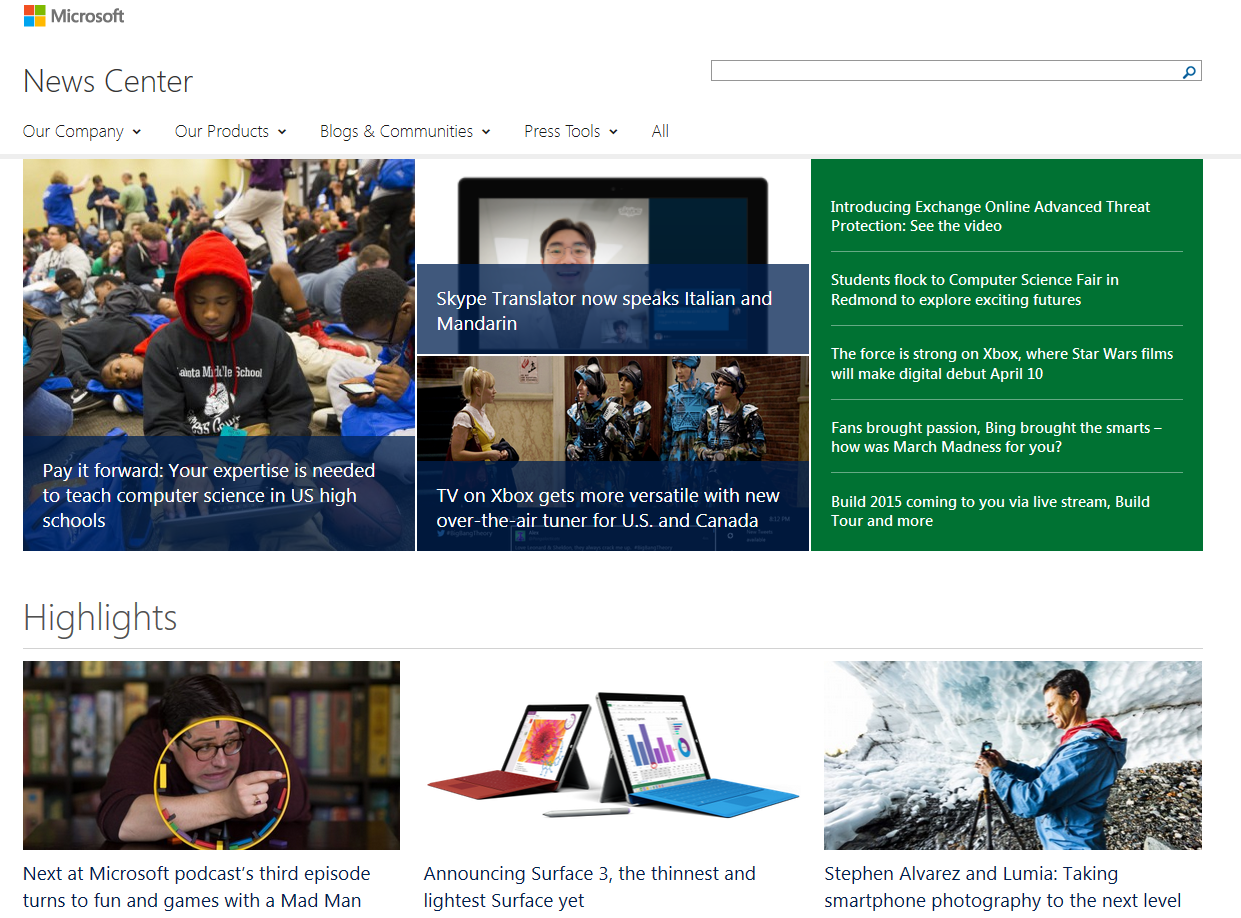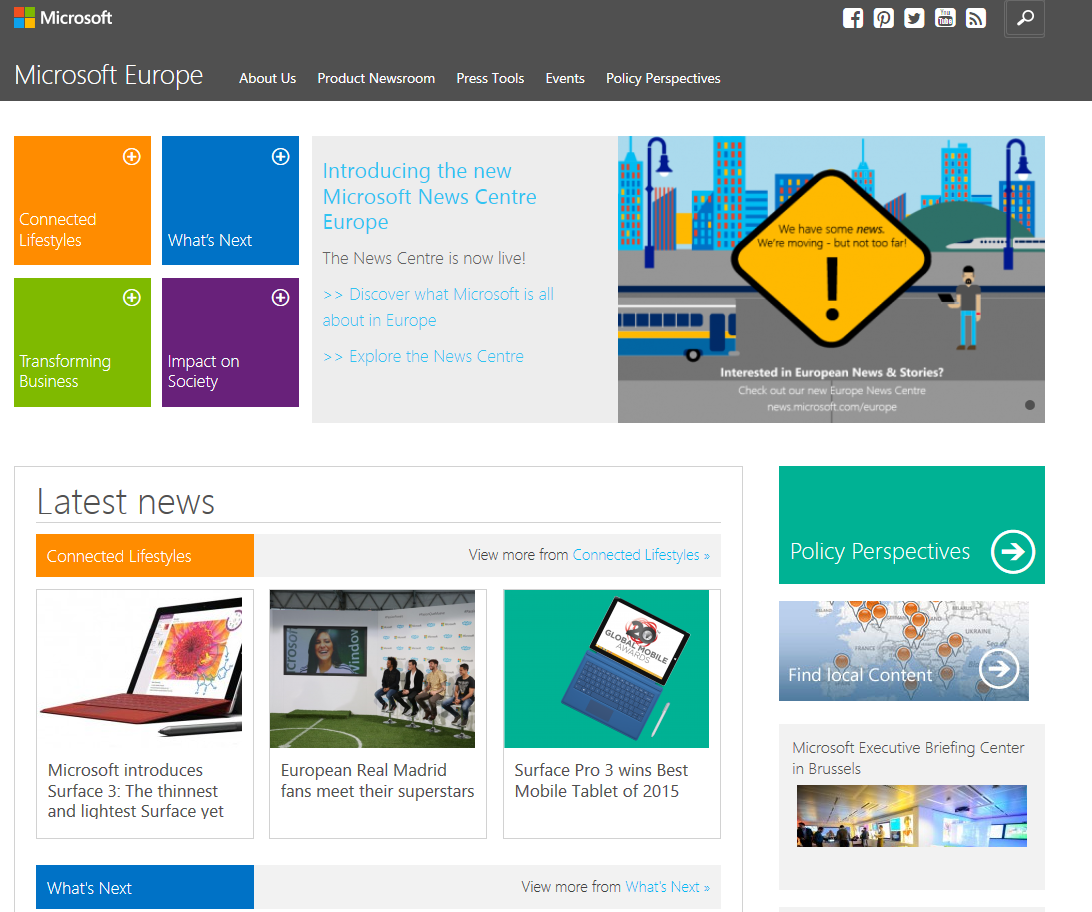For years, Microsoft and open source have rarely been used in the same sentence. With new leadership, the company has made major strides in becoming part of the open source movement.
Late last year, the company announced its .NET server stack would be open source, enabling .NET to become a cross-platform framework. The company has placed thousands of open source repositories on its Github account. When asked if Windows could one day be open source, Mark Russinovich, one of Microsoft’s top engineers says, “It’s definitely possible, it’s a new Microsoft.” Microsoft even has a website that explains its strategy and showcases open source projects its involved with.
Microsoft Azure Teams Up with WordPress
I initially noticed the company’s change in attitude towards open source in 2009 when Microsoft’s chief technology officer, Ray Ozzie, announced at the Professional Developers Conference that WordPress could be run using the Azure platform. Windows Azure is a cloud platform that enables you to build, deploy, and manage WordPress sites across a global network of Microsoft-managed data centers. In a post on the WordPress.com VIP blog, Matt Mullenweg explained why it’s a good move.
WordPress and Windows Azure probably aren’t the first two things you’d think of together. WordPress has been free and open source software from the very beginning, Windows not so much, but we’ve always supported as many platforms as possible and for at least 4 years now you could run WP on Windows and IIS (Internet Information Services).
Choice and competition are great for spurring innovation and better for users and I believe open source software is a good thing even if it’s on a proprietary platform. (Just like we have an open source iPhone application, or encourage people to use Firefox on Windows.)
Supporting the WordPress Community
Since 2009, Microsoft has sponsored several WordCamps, meetups, and WordPress specific events. I remember attending a WordCamp in 2010 sponsored by Microsoft and joking with attendees that it must be a mistake.
However, one of Microsoft’s representatives was in attendance and assured me that the company was changing its position on open source and sponsoring WordCamps was a good way to spread the message.
Examples of Microsoft Using WordPress
WebDevStudios, a company that specializes in web development using WordPress, has migrated several of Microsoft’s key websites to WordPress. In late 2014, Microsoft’s News Center re-launched on WordPress. The work involved a custom design and complex data migration from a proprietary CMS to WordPress, across 38 sites, in 16 different languages.

Around the same time, the company migrated Microsoft Europe to WordPress. Microsoft Europe focuses on Connected Lifestyles, What’s Next, Transforming Business, and Impact on Society for European countries.

The Microsoft Windows blog is a WordPress multisite network devoted to Windows and Internet Explorer topics. The blogs within the network are in multiple foreign languages that focus on content related to that region of the world.

The Last Laugh
It’s impressive to think how much Microsoft has changed to entertain the idea of open sourcing Windows. In 2007, when Mullenweg predicted that Microsoft will open source its software by 2017, I thought it was one of the funniest posts I’ve ever read. After witnessing the progress the company has made and continues to make, it’s possible he might have the last laugh.

Gee… not a single comment.
This sounds alot like what I have said in several posts.
As a Windows developer I have fallen on the floor several times. When they put out the community editions of Visual Studio. Especially considering I spent $1499 on the Pro edition.
Then along comes the open sourcing of .NET in support (it has been said) of Mono, .NET on Linux. Open source.
Then there is Microsoft helping third party developers not only in code but locating financial resources for approved CONCEPTUAL applications. Astonishing.
All these combined with what other bits I already knew all of a sudden has a pattern.
A poster on another thread said, “You’ll never see WP ported to say C#”
Again, I bet it does happen.
In fact, it makes complete sense to do so and no sense not to.
WP enjoys a BIG marketshare. That makes it ripe to target. The PHP technology that powers it is quickly lagging behind C#. Frameworks that exist for PHP result in even poorer performance. .NET is far more robust than any PHP framework and thus far more capable. For say WP to have a executable Windows Application to manage sites is a relatively simple task if .NET is used for WP itself. It moves to Enterprise ready out of the box.
It IS possible since WP is linear and not slopped full of OOP code that may be hard to transition and uses “Hooks” to latch addons to still maintain compatibility with existing PHP code and also move to another paradigm of event driven code. Then eventually developers will move to the event driven model as they see the benefits thereof. Javascript growth has enabled ALOT more possibilities and maximizing those possibilities and more than likely even more javascript growth and abilities via “browsers” is the future. .NET/C# are at least at this point in time the only game in town that is really perfectly positioned. Thats not by chance nor is the open sourcing. Nor was the community editions of Visual Studio.
Community editions released to get coders out there learning.
.NET so as no matter the server platform (as Linux still outperforms MS Server) here sits the most powerful “Stack” going and atop that a development environment that is just WAY beyond anything most third party web coders are accustomed to. Visual Studio is an excellent IDE, try it, you will be overwhelmed at first and amazed shortly thereafter.
The cloud is the future. That affords the do anything on any device anywhere on any smart device. Sorta like stepping back in time to industry. Used to be big mainframes with intelligent terminals and wires all over the place under rug protectors with 5 Megabyte hard drives the size of washing machines. Cobol! Yea! Oh slap!
The text could go over a slower than snail snot token ring network. Mine? No. Mine? No. Mine? No.
But a 300 BPS modem serving up a single web image of today? 24K byte small image, 300/8 mean throughput about 30 bytes a second, 820 seconds, only 13 minutes.
My first modem was a 110/300 BPS “Volks Modem” (http://www.ebay.com/itm/Anchor-Volksmodem-Universal-Interface-for-Computer-Communication-by-Telephone-/121565680474)
Point being, all this stuff is advancing us forward in the web technologies (granted in a very 40 years ago way! Whats old becomes new again? LOL). The cloud is akin to the mainframe. The intelligent terminal is akin to the smart device. The software, client/server.
Windows will be online, already announced. There sits your “hub”.
As I said “B4”. Microsoft did not buy Nokia either to sit last in mobile devices. They bought Nokia as when all this “unification gels” they have the #1 platform going NATIVE due to Windows Mobile. Just as Apple has enjoyed its “We have the iStuff”. Apple already dropped the ball with Android. Instead of offering iPhone 3’s or 4’s are cheap android phone prices they discontinued them.
Oops.
Now Android enjoys marketshare. Exact same “oops” they did with the original Mac’s.
I am sure they will bang up their own unification stuff perhaps with Adobe and Oracle.
But Windows Phone will be at least “In its time” the “New bestest thing to have”.
I must admit. I have two Windows tablets by Nextbook I bought last Xmas. WallyMert had Windows Nextbooks. 10″ tablet, hi-res display, Windows 8 on sale half price at the time, $149.
I called every local walmart and all sold out. Told em reserve one for me should more come in. Few days later local store got all of TWO. I got one. Employee got the other. I figured I’d not get one at all. So I ordered the smaller 7″ one online at Wallmert for like $79.
So, now I have two.
For the most part I LOVE them MUCH more so than any android Tab I’ve used. I dont like it as much as the iPad but its really quite different. The iPad is much more like a big iPhone with App’sies (with no phone in it? Duh. Same with Android tabs, Phone? Umm no” ARG!!!!
The Nextbook is a portable Windows PC. The 10″ has a keyboard detachable.
I can write WordPress code (I use PHPStorm, also have NuSphere several editions back) on the tablet. Save it to a windows share with Wamp or Xampp running on it, run chrome or MSIE or Firefox against it. All very nice. I recommend it.